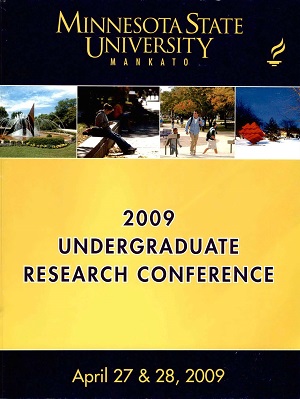"Doubly Disadvantaged?": The Presidential Candidacy of Shirley Chisholm
Location
CSU Ballroom
Start Date
27-4-2009 10:00 AM
End Date
27-4-2009 12:00 PM
Student's Major
Gender and Women's Studies
Student's College
Social and Behavioral Sciences
Mentor's Name
Jocelyn Stitt
Mentor's Department
Gender and Women's Studies
Mentor's College
Social and Behavioral Sciences
Description
In order to get their voices heard, groups with different interests and needs, often racially, socially, and economically marginalized groups, must take an active role in developing policies. Political representation is essential in articulating the need for change and then creating that change. However, African American women face a-"double disadvantage" in gaining seats as political representatives. Both women and Afncan Americans have different significant problems gaining political office than their male or white, respectively, counterparts do. Afiican American women are especially disadvantaged because of their challenges with the interlocking oppressions of both racism and sexism. While there are many individual examples of the "double disadvantage" Afiican American women face in American political elections, one specific female candidacy was examined in this study. In 1972, Shirley Chisholm was the first black female to run for the Democratic Party nomination for president. She was also the only black and only female candidate competing in the primaries; however both the National Organization for Women (NOW) and the Congressional Black Caucus did not endorse her. Questions sought to be answered in this content analysis research included: Why did NOW and the Congressional Black Caucus both decide not to endorse Chisholm in the 1972 presidential Democratic primary race? How did the chosen language by the media as well as the amount of coverage of Chisholm's candidacy affect these groups's choice to not endorse her? A content analysis was conducted to investigate these questions in order to identify areas that change needs to be made in order to increase the number of black women elected to political office.
"Doubly Disadvantaged?": The Presidential Candidacy of Shirley Chisholm
CSU Ballroom
In order to get their voices heard, groups with different interests and needs, often racially, socially, and economically marginalized groups, must take an active role in developing policies. Political representation is essential in articulating the need for change and then creating that change. However, African American women face a-"double disadvantage" in gaining seats as political representatives. Both women and Afncan Americans have different significant problems gaining political office than their male or white, respectively, counterparts do. Afiican American women are especially disadvantaged because of their challenges with the interlocking oppressions of both racism and sexism. While there are many individual examples of the "double disadvantage" Afiican American women face in American political elections, one specific female candidacy was examined in this study. In 1972, Shirley Chisholm was the first black female to run for the Democratic Party nomination for president. She was also the only black and only female candidate competing in the primaries; however both the National Organization for Women (NOW) and the Congressional Black Caucus did not endorse her. Questions sought to be answered in this content analysis research included: Why did NOW and the Congressional Black Caucus both decide not to endorse Chisholm in the 1972 presidential Democratic primary race? How did the chosen language by the media as well as the amount of coverage of Chisholm's candidacy affect these groups's choice to not endorse her? A content analysis was conducted to investigate these questions in order to identify areas that change needs to be made in order to increase the number of black women elected to political office.
Recommended Citation
Diekman, Andrea. ""Doubly Disadvantaged?": The Presidential Candidacy of Shirley Chisholm." Undergraduate Research Symposium, Mankato, MN, April 27, 2009.
https://cornerstone.lib.mnsu.edu/urs/2009/poster-session-A/16




